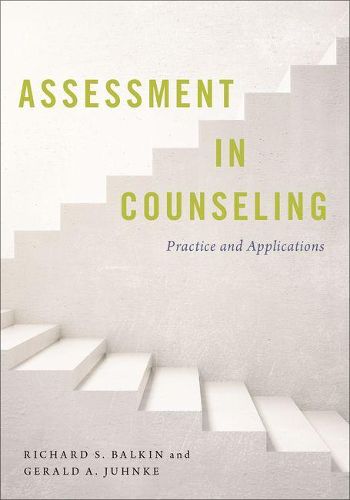Readings Newsletter
Become a Readings Member to make your shopping experience even easier.
Sign in or sign up for free!
You’re not far away from qualifying for FREE standard shipping within Australia
You’ve qualified for FREE standard shipping within Australia
The cart is loading…






Students often experience assessment courses, and subsequently the textbooks used for the course, as a statistics-heavy class accompanied by an encyclopedia of a variety of assessments. Assessment in Counseling alternatively emphasizes the skills used in assessment, thereby enabling students to apply these skills across a broad range of assessment instruments and strategies. Assessment, like most core areas of counseling, has a theoretical basis and a pertinent, practical component. However, this practical component often gets lost in the application of the skills and use of instruments that heavily rely on psychometric properties.
Written in an accessible, conversational tone, this text focuses on the application of the theoretical and measurement concepts of assessment in counseling and introduces three case studies that are followed throughout the text. Additionally, instead of introducing readers to a plethora of instruments, the authors select seminal measures that students are likely to approach and use in the profession. Through the use of this text and course content, one will acquire the skills to search, select, and administer the type of assessment instruments that he/she deems helpful for their practice as a professional counselor, regardless of specialization. Ultimately, this textbook serves as an invaluable guide for administering, scoring, interpreting, and communicating assessment results.
$9.00 standard shipping within Australia
FREE standard shipping within Australia for orders over $100.00
Express & International shipping calculated at checkout
Students often experience assessment courses, and subsequently the textbooks used for the course, as a statistics-heavy class accompanied by an encyclopedia of a variety of assessments. Assessment in Counseling alternatively emphasizes the skills used in assessment, thereby enabling students to apply these skills across a broad range of assessment instruments and strategies. Assessment, like most core areas of counseling, has a theoretical basis and a pertinent, practical component. However, this practical component often gets lost in the application of the skills and use of instruments that heavily rely on psychometric properties.
Written in an accessible, conversational tone, this text focuses on the application of the theoretical and measurement concepts of assessment in counseling and introduces three case studies that are followed throughout the text. Additionally, instead of introducing readers to a plethora of instruments, the authors select seminal measures that students are likely to approach and use in the profession. Through the use of this text and course content, one will acquire the skills to search, select, and administer the type of assessment instruments that he/she deems helpful for their practice as a professional counselor, regardless of specialization. Ultimately, this textbook serves as an invaluable guide for administering, scoring, interpreting, and communicating assessment results.